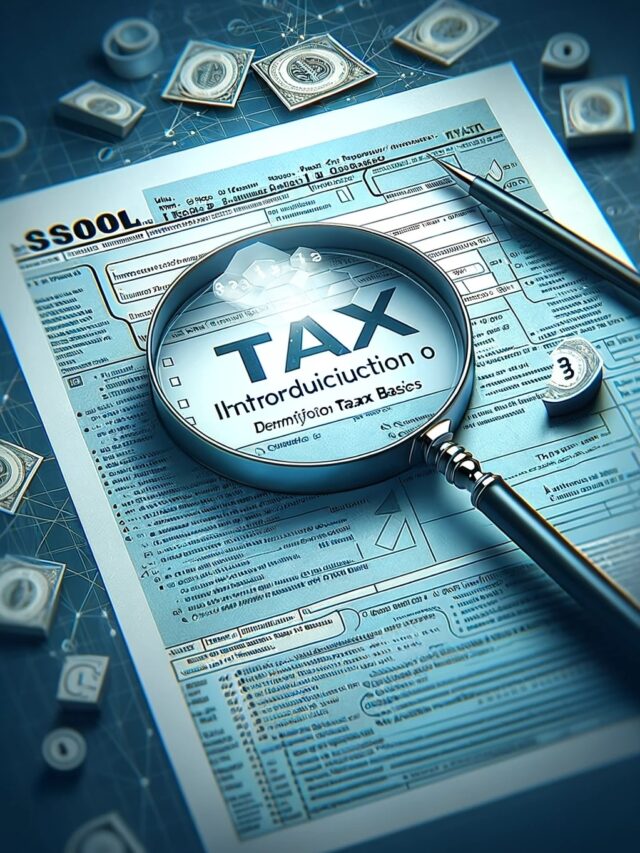Key Takeaway Box:
- The date for SSI, SSDI, VA, and stimulus checks is not January 30th, 2024. This is a false claim that has been circulating on social media and some websites.
- The latest stimulus package, the Build Back Better Act, has not been passed by Congress yet. It is still under negotiation and debate among lawmakers.
- The Build Back Better Act does not include direct payments to individuals, but it does propose to extend some tax credits and benefits for low-income and middle-class families.
- The next scheduled payment date for SSI, SSDI, and VA benefits is February 1st, 2024. This is the regular monthly payment date for these programs, unless it falls on a weekend or a holiday.
- If you are eligible for SSI, SSDI, or VA benefits, you can check the status of your payment online or by phone. You can also sign up for direct deposit or electronic transfer to receive your payment faster and more securely.
What is the source of the January 30th claim?
Hustlers, you may have seen or heard some rumors that the date for SSI, SSDI, VA, and stimulus checks is January 30th, 2024. This claim has been spreading on social media platforms like Facebook, Twitter, and YouTube, as well as some websites that claim to provide news and updates on stimulus checks and other government benefits.
However, this claim is not true. It is a false and misleading information that has no basis in reality. There is no official announcement or confirmation from the government or any credible source that supports this claim. In fact, the claim contradicts the facts and the current situation of the stimulus package and the benefit programs.
What is the status of the stimulus package?
The latest stimulus package that is being discussed and negotiated by Congress is the Build Back Better Act. This is a $1.75 trillion spending bill that aims to invest in social and environmental programs, such as child care, health care, education, climate change, and infrastructure. The bill is part of President Joe Biden’s economic agenda and his vision to rebuild the economy and the society after the COVID-19 pandemic.
The Build Back Better Act has been passed by the House of Representatives on November 19, 2023, but it has not been passed by the Senate yet. The bill faces some challenges and opposition from some senators, especially from the Republican Party and some moderate Democrats. The bill needs at least 50 votes in the Senate, plus the tie-breaking vote of Vice President Kamala Harris, to pass. However, some senators have expressed their concerns and objections about the size, the scope, and the cost of the bill. They have also proposed some changes and amendments to the bill, which may affect its final outcome and content.
Therefore, the Build Back Better Act is still under negotiation and debate among lawmakers. There is no clear timeline or deadline for when the bill will be passed by the Senate, or if it will be passed at all. The bill may undergo some revisions and modifications before it becomes a law.
Does the stimulus package include direct payments?
One of the most important questions that many people have is whether the stimulus package includes direct payments to individuals, also known as stimulus checks. The answer is no. The Build Back Better Act does not include direct payments to individuals, unlike the previous stimulus packages that were passed in 2020 and 2021.
However, the Build Back Better Act does propose to extend some tax credits and benefits for low-income and middle-class families, which may provide some financial relief and support. Some of these tax credits and benefits are:
- The Child Tax Credit (CTC), which provides up to $3,600 per child under 6 years old and up to $3,000 per child between 6 and 17 years old. The CTC was expanded and made fully refundable by the American Rescue Plan Act of 2021, which also allowed monthly payments of the CTC from July to December 2021. The Build Back Better Act proposes to extend the CTC for one more year, until December 2022.
- The Earned Income Tax Credit (EITC), which provides a refundable tax credit for low-income workers and families. The EITC was also expanded and enhanced by the American Rescue Plan Act of 2021, which increased the maximum credit amount, the income eligibility, and the age range for workers without children. The Build Back Better Act proposes to make these changes permanent, as well as to create a new EITC for older workers and caregivers.
- The Child and Dependent Care Tax Credit (CDCTC), which provides a tax credit for expenses related to child care and dependent care. The CDCTC was also increased and made refundable by the American Rescue Plan Act of 2021, which raised the maximum credit amount, the percentage of expenses covered, and the income limit for eligibility. The Build Back Better Act proposes to extend the CDCTC for five more years, until 2026.
- The Affordable Care Act (ACA) subsidies, which provide financial assistance for health insurance premiums and out-of-pocket costs for people who buy health insurance through the ACA marketplace. The ACA subsidies were also expanded and improved by the American Rescue Plan Act of 2021, which lowered the premiums, increased the eligibility, and eliminated the income cap for subsidies. The Build Back Better Act proposes to make these changes permanent, as well as to create a new public health insurance option and to expand Medicaid coverage in states that have not done so.
These are some of the main tax credits and benefits that the Build Back Better Act proposes to extend or make permanent. However, there are also other provisions and programs in the bill that may affect the income and the well-being of many Americans, such as paid family and medical leave, universal pre-kindergarten, free community college, home care, nutrition assistance, housing assistance, and more. You can find more details and information about the Build Back Better Act on the official website of the White House or on the official website of Congress.
IMPORTANT LINKS:
- What Expenses Can You Deduct from Your Rental Income? (Updated 2024)
- How to Get Your EITC Refund Faster in 2024
- CPP, RRSP, TFSA, FHSA, AMT and OAS Changes: What You Need to Know for 2024
- What Happens to Your CPP and OAS Benefits When Your Spouse Dies?
- How to Get the Grocery Rebate Payments in Canada in January 2024
What is the date for SSI, SSDI, and VA benefits?
Another question that many people have is what is the date for SSI, SSDI, and VA benefits. These are three different programs that provide monthly payments to eligible individuals who have low income, disabilities, or military service. These programs are:
- The Supplemental Security Income (SSI), which provides monthly payments to people who are aged 65 or older, blind, or disabled, and who have limited income and resources. The SSI program is administered by the Social Security Administration (SSA).
- The Social Security Disability Insurance (SSDI), which provides monthly payments to people who are disabled and who have worked and paid Social Security taxes for a certain period of time. The SSDI program is also administered by the SSA.
- The VA Benefit (VA), which provides monthly payments to veterans who have disabilities or injuries that are related to their military service. The VA program is administered by the Department of Veterans Affairs (VA).
The date for SSI, SSDI, and VA benefits is not January 30th, 2024. This is a false claim that has nothing to do with the stimulus package or the benefit programs. The date for SSI, SSDI, and VA benefits is February 1st, 2024. This is the regular monthly payment date for these programs, unless it falls on a weekend or a holiday. In that case, the payment date is moved to the previous business day.
For example, the payment date for January 2024 was January 31st, 2024, because January 1st was a holiday (New Year’s Day). The payment date for February 2024 is February 1st, 2024, because it is a business day. The payment date for March 2024 is March 1st, 2024, because it is also a business day. However, the payment date for April 2024 is March 31st, 2024, because April 1st is a weekend (Saturday).
The payment date for SSI, SSDI, and VA benefits is the same for most beneficiaries, but there are some exceptions and variations depending on the type of benefit, the date of eligibility, and the method of payment. You can find more details and information about the payment date for SSI, SSDI, and VA benefits on the official websites of the SSA and the VA.
How can you check the status of your Stimulus Checks payment?
If you are eligible for SSI, SSDI, or VA benefits, you can check the status of your payment online or by phone. You can also sign up for direct deposit or electronic transfer to receive your payment faster and more securely. Here are some ways to check the status of your payment:
- For SSI and SSDI benefits, you can create or log in to your my Social Security account online. This is a free and secure service that allows you to access your personal information, view your payment history, update your contact information, and more. You can also call the SSA at 1-800-772-1213 (TTY 1-800-325-0778) from Monday to Friday, 8:00 a.m. to 7:00 p.m. You will need to provide your Social Security number and some personal information to verify your identity and your payment information.
- For VA benefits, you can create or log in to your VA.gov account online. This is a free and secure service that allows you to access your personal information, view your payment history, update your contact information, and more. You can also call the VA at 1-800-827-1000 (TTY 1-800-829-4833) from Monday to Friday, 8:00 a.m. to 9:00 p.m. You will need to provide your VA file number and some personal information to verify your identity and your payment information.
To receive your payment faster and more securely, you can sign up for direct deposit or electronic transfer. This means that your payment will be deposited directly into your bank account or your debit card account, instead of being mailed to you by check. This way, you can avoid delays, lost or stolen checks, and fees. You can sign up for direct deposit or electronic transfer online or by phone, using the same services and numbers mentioned above.
Conclusion
Hustlers, we hope this article has cleared up some of the confusion and misinformation about the date for SSI, SSDI, VA, and stimulus checks. The date for SSI, SSDI, VA, and stimulus checks is not January 30th, 2024. This is a false claim that has been circulating on social media and some websites. The date for SSI, SSDI, and VA benefits is February 1st, 2024. This is the regular monthly payment date for these programs unless it falls on a weekend or a holiday.
The latest stimulus package, the Build Back Better Act, has not been passed by Congress yet. It is still under negotiation and debate among lawmakers. The Build Back Better Act does not include direct payments to individuals, but it does propose to extend some tax credits and benefits for low-income and middle-class families.
If you are eligible for SSI, SSDI, or VA benefits, you can check the status of your payment online or by phone. You can also sign up for direct deposit or electronic transfer to receive your payment faster and more securely.
We hope you found this article informative and helpful. If you have any questions or comments, please feel free to share them with us. We would love to hear from you. And don’t forget to check out our website, HustleHub, for more tips and resources on how to hustle and make money online. Thank you for reading and stay tuned for more updates. 🙌














